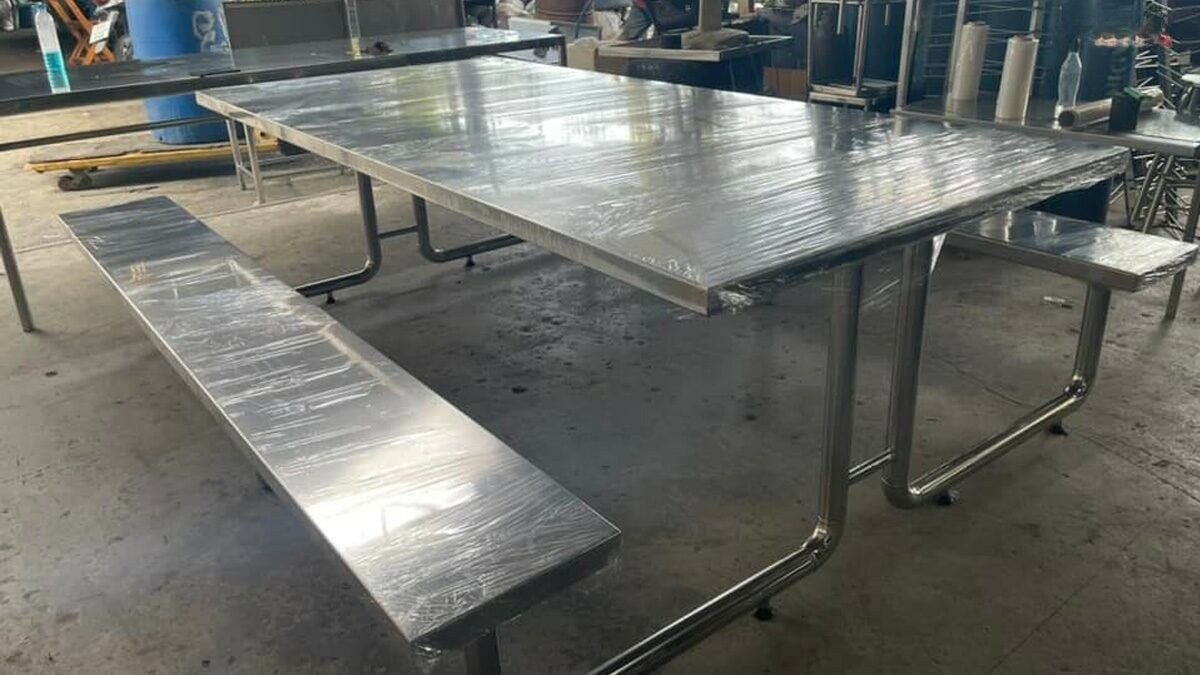Fraudsters target Thai schools with fake dining table sales

A new scam targeting schools by offering stainless steel dining tables has emerged, causing significant financial losses to unsuspecting victims. The scam involves setting up fake stores and using counterfeit documents to deceive businesses into transferring large sums of money, believing they are purchasing these tables for schools.
Reports of the scam began surfacing when a Facebook user, Pupe Chiquita, shared a cautionary tale about being duped into buying stainless steel dining tables, leading to losses in hundreds of thousands of baht. This incident reportedly occurred over a span of three days, involving a second-hand bookstore that was approached by fraudsters under the guise of legitimate business.
Victims of this scam include various businesses, such as plant shops and curtain sellers. However, the second-hand bookstore, which has been operating for several decades with a physical store and an active online presence, narrowly escaped falling victim to the scam.
The store received a call from someone claiming to be a teacher from a school, who expressed interest in purchasing 700 books for the school library. Communication continued via LINE, with the scammer, referred to as Fraudster 1, later suggesting the purchase of 50 stainless steel dining tables.
Fraudster 1 claimed to have a vendor in mind but requested the bookstore to mediate the purchase due to personal conflicts with the vendor. The scammer offered the bookstore a profit margin, stating a budget of 20,000 baht per table and provided contact details for another scammer, Fraudster 2, to facilitate the transaction.
The bookstore contacted Fraudster 2, who swiftly responded with a price quote and accompanying documents, seemingly from a legitimate stainless steel company. However, the payment was requested to be made to a personal account rather than a company account, raising suspicions. The bookstore communicated with Fraudster 1, confirming the quote and urging them to transfer the funds directly to the account provided.
In a hurry, Fraudster 1 insisted the tables needed to be delivered to the school by 4pm, pressuring the bookstore to arrange the payment. In response, Fraudster 2 demanded a deposit of 150,000 baht to initiate delivery, while Fraudster 1 attempted to negotiate a smaller deposit, offering to cover 50,000 baht personally.
The bookstore, however, refused to front the money, prompting Fraudster 1 to produce a transfer slip from a school’s account, allegedly to cover the full cost. Yet, the money never appeared in the bookstore’s account.
Upon verifying with the bank, it was confirmed that no transaction had occurred. Realising the scam, the bookstore confronted the fraudsters, who then threatened legal action before ultimately blocking all contact.

This elaborate scam has affected multiple businesses, with the scammers frequently changing their account details to avoid detection. The legitimate stainless steel company whose name was used in the scam has since received numerous complaints from duped victims, disrupting their operations.
Businesses are advised to exercise caution and thoroughly verify all transactions to avoid falling prey to such scams. It’s important not to act as intermediaries or use personal accounts for business transactions, as this can lead to becoming unwitting accomplices in fraudulent activities.
The challenge remains in tracking the fraudsters and recovering lost funds, as only limited information is available about their identities and bank accounts, reported KhaoSod.
Latest Thailand News
Follow The Thaiger on Google News:


























